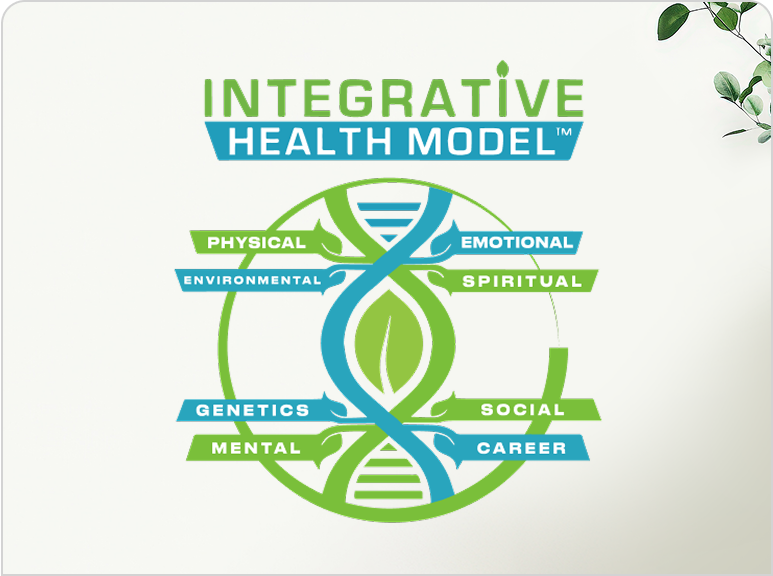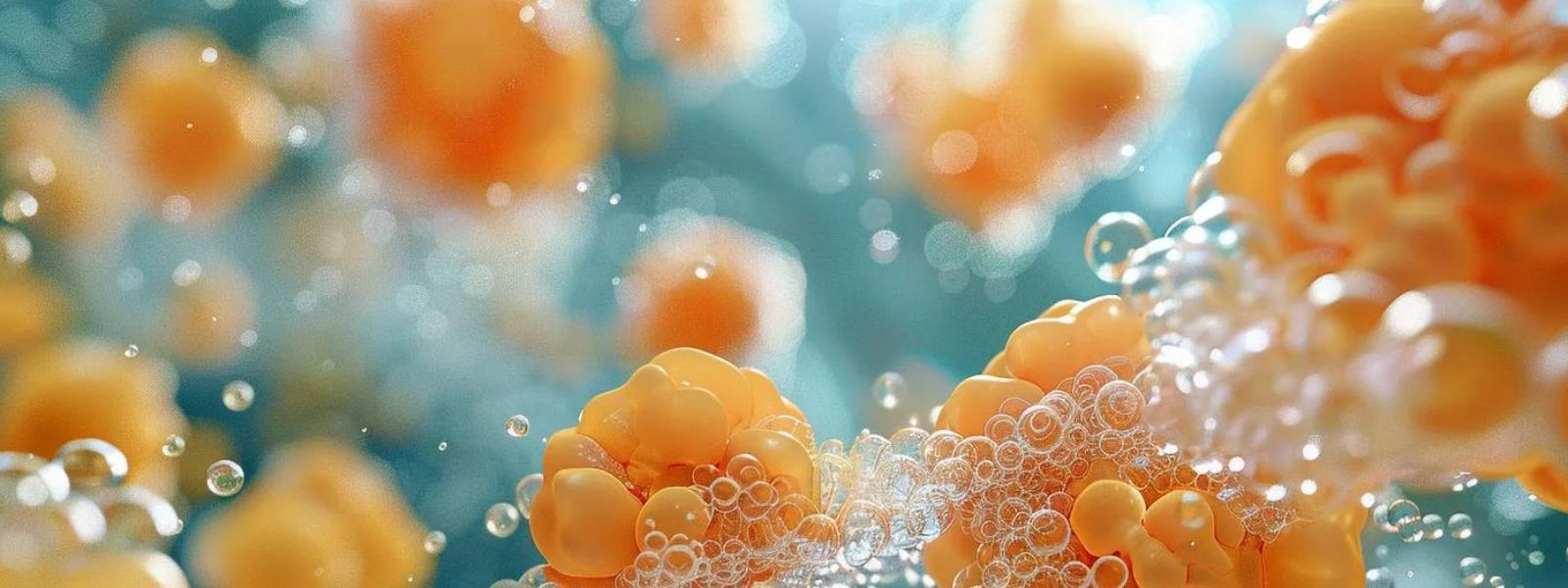Best IV Therapies for Brain Fog Relief

The best IV therapy for brain fog is usually one that restores hydration and replenishes key nutrients your brain needs to function properly. Myers’ Cocktail IV is the most common option it combines vitamin B12, magnesium, vitamin C, and electrolytes that improve focus and mental clarity. Some clinics also add glutathione or NAD+ to boost cellular energy and reduce fatigue.
Intravenous therapy bypasses digestion and provides immediate nutrient absorption, helping people with focus problems, memory loss, and mental fatigue. Brain fog affects millions of Americans, with studies showing 15% to 40% of chronic pain sufferers experiencing cognitive difficulties. Most patients notice improved concentration after their first session.
Healthcare providers at functional medicine practices assess each patient's unique needs before recommending specific IV treatments. The right therapy depends on underlying causes, nutrient deficiencies, and individual health goals.
What Is Brain Fog?
Brain fog describes cognitive impairment symptoms that make thinking, focusing, and remembering difficult. Common signs include trouble concentrating, forgetfulness, slow thinking, mental exhaustion, and difficulty finding words.
Brain fog is not a medical disease or diagnosis. Multiple factors trigger cognitive symptoms, including lack of sleep, autoimmune conditions, diabetes, mental health disorders, and vitamin deficiencies. People describe brain fog as thinking through thick mud or having cloudy thoughts that prevent clear decision-making.
Unlike dementia or delirium, brain fog sufferers maintain awareness of their surroundings and responsibilities, but their thought processes move slower than normal. The condition affects people of all ages, from college students to working professionals and older adults.
What Causes Brain Fog?
Sleep problems, dehydration, hormonal imbalances, and inflammation rank as major causes of brain fog.
Sleep disorders including chronic insomnia and sleep apnea often produce daytime mental cloudiness. Research from Michigan Medicine shows that poor sleep impairs communication between neurons, directly affecting cognition. Adults need 7 to 9 hours of quality sleep nightly for optimal brain function.
Dehydration severely impacts mental performance. Studies demonstrate that losing just 2% of body water content leads to reduced concentration and memory problems. The brain consists of approximately 75% water, making proper hydration essential for cognitive performance.
Hormonal imbalances, particularly thyroid dysfunction and blood sugar irregularities, strongly relate to cognitive difficulties. Survey data reveals that 79.2% of people with hypothyroidism report experiencing brain fog frequently or constantly. Thyroid hormones regulate cellular metabolism throughout the body, including brain tissue.
Long COVID remains a significant trigger for persistent brain fog symptoms. Research published in Nature found the SARS-CoV-2 virus can linger in the brain stem through slow replication, causing ongoing cognitive issues. The virus alters gut microbiota composition, reducing serotonin production and affecting cognition through the gut-brain axis.
Autoimmune conditions like lupus and multiple sclerosis cause brain fog in approximately half of affected patients. Chronic inflammation from these diseases disrupts normal neurological function. Chronic pain conditions including fibromyalgia lead to cognitive problems in 15% to 40% of sufferers, as pain processing uses brain resources needed for clear thinking.
How Does IV Therapy Help Brain Fog?
Intravenous therapy delivers nutrients directly into blood vessels, achieving nearly 100% absorption compared to oral supplements.
Oral vitamins and supplements must pass through the digestive system, where stomach acid and intestinal enzymes break them down. This digestive process reduces bioavailability significantly, with many oral supplements providing only 20% to 50% absorption rates.
IV infusions bypass the digestive barrier entirely. The full nutrient dose enters circulation immediately through intravenous administration. Blood carries vitamins, minerals, amino acids, and antioxidants directly to brain cells within minutes.
This rapid delivery system produces faster cognitive improvements than oral supplements. Many people report feeling more alert and focused before leaving the clinic. The brain receives immediate support for energy production, neurotransmitter synthesis, cellular repair, and inflammation reduction.
Intravenous therapy sessions typically provide noticeable results within 30 to 60 minutes of administration. This quick response time helps people who need immediate relief from mental fatigue or concentration problems.
What Is NAD+ IV Therapy?
NAD+ (nicotinamide adenine dinucleotide) intravenous therapy replenishes a coenzyme that powers cellular energy production in the brain.
NAD+ serves as a critical coenzyme for energy metabolism, DNA repair, and cellular signaling throughout the body. Your brain consumes approximately one-third of all energy produced in the body, making adequate NAD+ levels essential for optimal cognition.
NAD+ levels naturally decline with age, leading to decreased brain function, slower thinking, and increased mental fatigue. Research from Harvard Medical School identifies NAD+ as a key factor in age-related cognitive decline and mitochondrial dysfunction.
Intravenous NAD+ therapy saturates brain tissue with nutrients needed for cell metabolism and faster signaling between neurons. This coenzyme acts as a delivery mechanism for electrons moving to and from enzymes in mitochondria, the energy-producing centers of cells.
What Are NAD+ Benefits for Mental Clarity?
NAD+ therapy helps clear brain fog, improve focus, boost memory capacity, and reduce mental exhaustion. Clinical observations show many patients experience these cognitive improvements during or immediately after infusion.
NAD+ assists in regulating neurotransmitter levels including serotonin, dopamine, and norepinephrine. These brain chemicals link directly to mood stabilization, motivation, and mental clarity. Research indicates 93% of subjects experienced improvements in depressive symptoms including fatigue, brain fog, and sadness after NAD+ infusion therapy.
Studies in animal models demonstrate that NAD+ administration improves cognitive function and prevents brain inflammation associated with neurodegenerative diseases. While large-scale human trials continue, early clinical results prove promising for mental clarity enhancement.
NAD+ therapy combats cognitive impairment by providing cells with energy needed for optimal performance. Cell metabolism and function receive significant boosts, allowing faster and more efficient signaling between brain cells.
How Often Should You Get NAD+ Therapy?
Most healthcare providers recommend weekly intravenous sessions initially, transitioning to monthly maintenance treatments once symptoms improve. Treatment duration and frequency vary by individual health goals, symptom severity, and response to therapy.
Some patients need intensive protocols with multiple sessions per week for several weeks before moving to maintenance schedules. Athletes, busy professionals, and people with chronic fatigue often use NAD+ therapy regularly for sustained cognitive performance.
What Is Myers Cocktail IV Therapy?
Myers Cocktail combines B-complex vitamins, vitamin C, magnesium, and calcium in an intravenous formula developed in the 1970s by Dr. John Myers.
The Myers Cocktail delivers high doses of essential nutrients mixed with sterile water or saline solution. This comprehensive blend supports immune function, energy production, cognitive health, and cellular metabolism. Dr. John Myers pioneered intravenous vitamin treatments in Baltimore, combining his engineering background with medical expertise to study how trace minerals affect cellular function.
After Dr. Myers' death in 1984, his patients sought similar treatments from other practitioners. The formula gained popularity among complementary and alternative medicine providers. Many doctors have since modified the nutrient amounts in the original Myers Cocktail, creating personalized variations.
What Nutrients Are in Myers Cocktail?
B-complex vitamins (B1, B2, B3, B5, B6, B12) support energy production, brain health, and metabolism. These vitamins prove essential for reducing fatigue and enhancing mental clarity. B vitamins play crucial roles in converting food into cellular energy and regulating the body's stress response.
Vitamin C boosts immune system function and fights oxidative stress. This powerful antioxidant protects brain cells from free radical damage and promotes healthy neurological function. High-dose vitamin C through intravenous administration achieves tissue levels impossible through oral supplementation.
Magnesium regulates muscle and nerve function, blood sugar balance, and blood pressure. This mineral participates in over 300 biochemical reactions throughout the body. Magnesium supports neurotransmitter function, reduces stress hormones, and enhances mental clarity naturally.
Calcium proves crucial for bone health, nerve signal transmission, and muscle contractions. The Myers Cocktail delivers bioavailable calcium that cells can immediately absorb and utilize for various physiological processes.
How Does Myers Cocktail Help Brain Fog?
B vitamins, especially B12, support brain function and neurotransmitter synthesis essential for clear thinking. These vitamins help produce acetylcholine, serotonin, dopamine, and other chemicals that regulate cognition, mood, and memory.
Magnesium and B vitamins work synergistically to improve focus, reduce brain fog symptoms, and enhance overall cognitive function. The combination addresses multiple nutritional factors contributing to mental cloudiness simultaneously.
Treatment sessions last 30 to 60 minutes with cognitive effects lasting several days or weeks. Most people feel refreshed and mentally energized immediately after the infusion, with continuing improvements over the following days.
The intravenous infusion helps rehydrate the body quickly and efficiently, benefiting overall health and brain function. Proper hydration with electrolytes optimizes blood flow to brain tissue, improving oxygen and nutrient delivery.
What Is Vitamin B12 IV Therapy?
Vitamin B12 intravenous therapy delivers high-dose cobalamin directly into the bloodstream to support nerve health and brain function.
Vitamin B12 (cobalamin) proves critical for neurological health, helping with red blood cell production, myelin sheath formation, neurotransmitter regulation, and energy metabolism. Low B12 levels correlate with cognitive decline, memory loss, depression symptoms, and peripheral neuropathy.
A B12 intravenous drip provides rapid absorption, completely bypassing digestion for instant cellular availability. This delivery method proves especially beneficial for people with digestive disorders or absorption problems.
Who Needs B12 IV Therapy?
- People over age 50, vegetarians, vegans, and those with digestive disorders often develop B12 deficiencies
- Individuals taking proton pump inhibitors or stomach acid reducers frequently experience B12 depletion
Signs of B12 deficiency include depression, chronic fatigue, brain fog, memory problems, numbness, and tingling sensations. The body produces less intrinsic factor with age, a protein required for B12 absorption, increasing the likelihood of deficiency in older adults.
Digestive health plays a crucial role in nutrient absorption and overall wellness. Conditions like Crohn's disease, celiac disease, and gastritis prevent proper B12 uptake from dietary sources.
Results typically appear within 24 to 48 hours of intravenous treatment. Many patients report feeling significantly more energetic and mentally alert shortly after the infusion. Enhanced oxygen delivery to brain tissue may reduce both physical and mental fatigue.
What Is Glutathione IV Therapy?
Glutathione intravenous therapy provides a master antioxidant that protects brain cells from oxidative stress and supports detoxification.
Glutathione consists of three amino acids (glutamine, cysteine, and glycine) that form the body's most powerful antioxidant compound. This molecule plays crucial roles in protecting brain neurons, supporting immune function, and eliminating toxins.
Oxidative stress and toxin accumulation contribute significantly to cognitive decline and mental fog. Glutathione helps reduce oxidative damage and detoxify the brain, improving mental clarity and reducing brain fog symptoms. Optimal glutathione levels enhance cognitive function and support cellular energy production.
Many clinics add glutathione to other intravenous formulas for enhanced neuroprotection. This antioxidant also functions as a chelator of heavy metals including lead, mercury, cadmium, and arsenic. Removing toxic heavy metals through IV therapy helps clear brain fog caused by environmental exposure.
Environmental medicine addresses how toxins, pollutants, and chemicals affect health and cognitive function. Testing for heavy metal exposure helps identify hidden causes of mental cloudiness.
What Are Amino Acid IV Infusions?
Amino acid intravenous therapy delivers protein building blocks like taurine, L-carnitine, and L-tyrosine that support brain cell repair and neurotransmitter function.
Amino acids serve as the fundamental building blocks for proteins, neurotransmitters, and cellular structures throughout the body. Certain amino acids prove especially beneficial for cognitive enhancement and mental clarity.
Alpha-lipoic acid scavenges free radicals, reduces inflammation, and may protect brain cells from conditions like stroke, multiple sclerosis, and Alzheimer's disease. Preclinical research suggests this antioxidant helps prevent memory loss through neuroprotective mechanisms.
Taurine supplementation promotes healthy long-term memory storage according to research reviews published in Brain Defects Research. The amount of taurine in brain tissue decreases with age, potentially contributing to age-related cognitive decline. Taurine acts as a calming neurotransmitter, helping alleviate brain fog and improve mental clarity.
L-carnitine enhances mitochondrial energy production, providing cells with more fuel for cognitive tasks. L-tyrosine supports dopamine and norepinephrine synthesis, neurotransmitters essential for alertness, motivation, and focus.
These amino acids improve mental alertness and concentration, support mood-regulating brain chemicals, and enhance cellular energy production for sustained cognitive performance.
What Is Hydration IV Therapy?
Hydration intravenous therapy replenishes fluids and electrolytes through direct vein administration to restore proper brain function.
Dehydration ranks among the most overlooked causes of brain fog and cognitive impairment. Studies demonstrate that losing just 2% of body water content leads to measurable reductions in concentration, memory performance, and reaction times.
The brain consists of approximately 75% water, making adequate hydration absolutely essential for optimal cognitive performance. Even mild dehydration affects how efficiently neurons communicate and how quickly the brain processes information.
Basic hydration intravenous solutions contain sterile saline, sodium, potassium, and sometimes B-complex vitamins for added energy support. Treatment takes approximately 30 minutes with immediate noticeable results. People often feel significantly more alert and focused within an hour of receiving hydration therapy.
Dehydration from illness, intense physical exercise, alcohol consumption, or inadequate water intake depletes essential nutrients and leads to fatigue, dizziness, headaches, and mental fog. Intravenous hydration rapidly replenishes lost fluids and electrolytes, restoring physiological balance quickly.
How Do You Choose the Right IV Therapy?

Match intravenous therapy selection to specific brain fog causes, symptoms, and individual health status for optimal results.
People with chronic fatigue syndrome benefit most from NAD+ therapy due to its powerful cellular energy support and mitochondrial enhancement. Those dealing with multiple nutrient deficiencies and stress respond well to Myers Cocktail's comprehensive vitamin and mineral blend.
Vegetarians, vegans, and people over age 50 often require B12 supplementation due to limited dietary sources or decreased absorption capacity. Healthcare providers should test vitamin and mineral levels through blood work before recommending specific treatments.
Laboratory testing identifies exact deficiencies and guides personalized therapy selection accurately. Testing eliminates guesswork and targets specific nutritional needs efficiently. People exposed to environmental toxins or heavy metals benefit from glutathione therapy's detoxification properties.
Athletes and active individuals recovering from intense training respond well to amino acid infusions that support muscle repair and cognitive function. Those with simple dehydration often need only basic hydration intravenous solutions to resolve symptoms completely.
What Happens During IV Therapy Treatment?
Intravenous therapy sessions involve consultation, preparation, infusion, and monitoring by licensed medical professionals.
A healthcare provider reviews complete medical history, current medications, and health goals during the initial consultation. This thorough assessment determines if IV therapy suits the patient safely and which formula provides optimal benefits. Providers ask detailed questions about existing conditions, allergies, and medications that might interact with treatment.
Nurses insert a small catheter into an arm vein, typically in the antecubital area, and attach tubing connected to the IV bag containing selected nutrients. The insertion causes minimal discomfort, comparable to a standard blood draw. Most people report only a small pinch during needle placement.
The infusion typically takes 20 to 60 minutes, depending on the solution volume and specific formulation. Patients can read books, work on laptops, listen to music, watch videos, or simply relax during treatment. Many wellness clinics provide comfortable recliners and calming environments.
Healthcare staff monitor patients throughout the infusion for any adverse reactions or discomfort. Vital signs remain stable in the vast majority of cases. After completing the infusion, nurses remove the catheter and apply a small bandage. Most people resume normal daily activities immediately without restrictions.
What Results Can You Expect from IV Therapy?
Most patients notice cognitive improvements within hours to days, depending on treatment type and individual factors.
Hydration intravenous solutions provide the fastest relief, often clearing mental fog within 30 minutes to several hours. The immediate fluid replenishment helps brain cells function properly almost instantly, restoring normal cognition quickly.
B12 infusions show effects within 24 to 48 hours as the vitamin supports red blood cell production and myelin repair. Many patients report brain fog clearing with noticeably faster thinking and better focus after NAD+ therapy. Some people experience improvements during the actual infusion session.
Myers Cocktail effects often last several days to a full week. Patients report sustained energy levels, improved mental performance, and better stress resilience during this period. Regular treatments help maintain optimal nutrient levels and prevent symptoms from returning.
Results duration varies by individual health status, underlying causes, lifestyle factors, and treatment frequency. Some people need only single sessions for temporary issues while others require ongoing maintenance for chronic conditions. Consistent treatment schedules typically produce longer-lasting cognitive benefits than sporadic sessions.
What Are IV Therapy Side Effects?
Intravenous therapy typically produces minimal side effects when administered by trained professionals following proper protocols.
Common side effects include temporary discomfort at the injection site, mild flushing, feeling of warmth spreading through the body, or cool sensations in the arm during infusion. These reactions resolve quickly without medical intervention.
Serious complications remain rare when healthcare providers follow established safety protocols. In people with pre-existing abnormalities in blood levels of magnesium or potassium, infusions containing these minerals can potentially cause problems like abnormal heart rhythms or muscle weakness.
People with kidney disease, high blood pressure, or heart conditions should avoid high-dose intravenous vitamin therapy. High-dose infusions could lead to fluid overload, potentially damaging kidneys, brain tissue, or heart muscle temporarily or permanently.
Pregnant and breastfeeding women should consult qualified doctors before receiving any intravenous treatments. Naturopathic medicine emphasizes safe, evidence-based, scientifically-supported treatments appropriate for each patient's situation.
How Often Should You Get IV Therapy?
Treatment frequency depends on individual health goals, symptom severity, underlying causes, and chosen therapy type.
People seeking acute relief from temporary brain fog may need only one session. Someone dealing with short-term mental cloudiness from travel, mild illness, or dehydration often resolves symptoms with a single treatment.
Those with chronic conditions often start with weekly intravenous treatments, then transition to bi-weekly or monthly maintenance schedules once symptoms improve. Healthcare providers adjust treatment frequency based on patient response, symptom improvement, and laboratory test results.
NAD+ therapy protocols vary widely between providers and patients. Some people receive intensive daily sessions for one week, then switch to monthly maintenance infusions. Others prefer weekly sessions over extended periods for gradual improvement.
Myers Cocktail patients typically schedule treatments every 1 to 4 weeks depending on symptom patterns and nutrient status. B12 injections or intravenous infusions may occur weekly, biweekly, or monthly based on deficiency severity and individual absorption capacity.
What Lifestyle Changes Support IV Therapy?
Sleep quality, nutrition, hydration habits, and stress management practices amplify intravenous therapy benefits significantly.
Adults require 7 to 9 hours of quality sleep nightly for optimal brain function and cognition. Poor sleep leads to impaired communication between neurons according to neuroscience research. Creating a consistent sleep schedule helps regulate circadian rhythms and improve rest quality.
Brain-healthy nutrition includes fatty fish rich in omega-3 fatty acids, leafy greens containing folate and B vitamins, berries packed with antioxidants, nuts and seeds providing healthy fats, and whole grains offering steady glucose energy. These foods supply nutrients that support cognitive function naturally through diet.
Daily water intake should approximate half your body weight in ounces for adequate hydration. A person weighing 150 pounds needs approximately 75 ounces of water daily. Consistent hydration prevents the cognitive decline associated with fluid deficits.
Exercise for 30 minutes most days to increase cerebral blood flow and oxygen delivery. Physical activity promotes neuroplasticity, neurotransmitter production, and supports overall mental health. Mental health improves substantially with regular movement and stress reduction practices.
Stress management techniques include deep breathing exercises, meditation, mindfulness practices, spending time outdoors in nature, and engaging in enjoyable hobbies. Chronic stress depletes essential nutrients, raises cortisol levels, and impairs brain function over time.
How Does Functional Medicine Approach Brain Fog?
Functional medicine identifies root causes of brain fog through comprehensive laboratory testing and personalized treatment strategies.
Providers test for nutrient deficiencies, hormone imbalances, thyroid dysfunction, adrenal stress, and gastrointestinal health problems through specialized laboratory panels. Blood work, saliva hormone testing, and comprehensive stool analyses reveal underlying issues contributing to cognitive symptoms.
Integrative approaches combine intravenous therapy with dietary modifications, targeted nutritional supplements, herbal medicines, and stress reduction techniques. Addressing multiple contributing factors simultaneously produces superior outcomes compared to single interventions alone.
Holistic medicine addresses physical, emotional, environmental, and spiritual factors contributing to cognitive symptoms. This comprehensive strategy considers the whole person rather than isolated symptoms or conditions. Treatment plans reflect individual circumstances, preferences, and long-term health goals.
Gut health significantly impacts brain function through the gut-brain axis, a bidirectional communication system between the gastrointestinal tract and central nervous system. Inflammation in the digestive system can trigger neuroinflammation and cognitive symptoms.
Hormone testing reveals imbalances that contribute substantially to brain fog. Thyroid disorders, cortisol dysregulation, insulin resistance, and sex hormone imbalances all affect cognition profoundly. Correcting these endocrine issues through natural therapies often restores mental sharpness dramatically.
What Does IV Therapy Cost?
Intravenous therapy prices range from $75 to $1,000 per session depending on treatment type, location, and clinic.
Basic hydration solutions cost $100 to $200 per session at most wellness clinics. Myers Cocktail ranges from $150 to $300 depending on specific nutrient concentrations and regional pricing. Vitamin B12 therapy costs $75 to $150 per infusion or injection.
NAD+ therapy typically costs $300 to $1,000 per session due to the expensive coenzyme and longer infusion times required. Treatment durations for NAD+ often exceed 2 to 4 hours, necessitating extended clinical time and monitoring.
Most insurance plans do not cover wellness intravenous therapy for brain fog or general health optimization. Insurance may cover treatments when physicians prescribe IV therapy for diagnosed medical conditions like severe malabsorption syndromes or documented vitamin deficiencies.
Some providers offer package pricing and membership programs with discounts for regular treatments. Buying multiple sessions upfront often reduces per-treatment costs significantly. Payment plans help spread expenses over time, making treatments more financially accessible.
How Do You Find Quality IV Therapy Providers?

Choose intravenous therapy providers with licensed medical staff, pharmaceutical-grade ingredients, and clean certified facilities.
Licensed registered nurses or doctors should administer all treatments according to state medical practice regulations. Proper training and certification reduce complication risks and provide safe, effective care. Staff should maintain current licenses and follow established medical protocols.
Facilities must follow proper safety protocols including sterile technique and use medical-grade sterile equipment for every treatment. Clinics should maintain spotless environments and adhere to strict infection control standards. Observe the treatment area during consultation to personally assess cleanliness and professionalism.
Providers should conduct thorough medical history reviews before any treatment. Comprehensive health assessments identify contraindications, drug interactions, and optimize treatment selection for individual needs. Avoid clinics that skip this crucial step or seem rushed during consultations.
Check online reviews and testimonials for consistent positive feedback about treatment results, staff professionalism, safety practices, and facility quality. Look for patterns in reviews rather than focusing on isolated comments. Multiple similar positive experiences indicate reliable, quality service.
Avoid clinics making unrealistic promises, guaranteeing specific outcomes, or using non-medical staff for intravenous administration. Be wary of providers who cannot clearly explain treatment rationale or seem to follow one-size-fits-all approaches. Transparent pricing demonstrates professionalism and respect for patients.
What Role Does Nutrition Play in Brain Fog Prevention?
Proper nutrition provides essential building blocks for neurotransmitters, cellular energy production, and optimal cognition.
The brain requires specific nutrients to function at peak capacity. Deficiencies in B-complex vitamins, omega-3 fatty acids, iron, magnesium, zinc, and vitamin D all contribute to cognitive symptoms and impaired mental performance.
Protein supplies amino acids needed for neurotransmitter synthesis. The brain uses these building blocks to manufacture serotonin, dopamine, norepinephrine, and other chemicals controlling mood, motivation, focus, and cognition. Insufficient protein intake directly impairs mental function.
Healthy fats support brain cell membrane structure and reduce inflammation throughout the nervous system. Omega-3 fatty acids from salmon, sardines, flaxseed, and walnuts prove especially beneficial for cognitive health. These essential fats comprise a substantial portion of brain tissue structure.
Complex carbohydrates from whole grains, legumes, and vegetables provide steady glucose for sustained brain energy. Simple sugars cause blood glucose spikes and crashes that worsen brain fog symptoms and energy levels.
Antioxidants from colorful fruits and vegetables protect brain cells from oxidative damage and free radical injury. Berries, leafy greens, and cruciferous vegetables supply protective phytonutrients. Nutrition counseling helps optimize dietary choices for cognitive health and overall wellness.
How Do Hormones Affect Brain Fog?
Hormone imbalances significantly impact cognitive function through multiple physiological mechanisms.
Thyroid hormones regulate cellular metabolism throughout the entire body, including brain tissue. Hypothyroidism slows metabolic processes, leading to mental sluggishness, poor concentration, and persistent brain fog. Thyroid function testing reveals deficiencies requiring treatment.
Cortisol dysregulation from chronic stress impairs hippocampal function, affecting memory formation and information recall. Both excessively high and abnormally low cortisol levels cause cognitive problems and mental cloudiness.
Sex hormone changes during menopause, perimenopause, and andropause frequently trigger brain fog symptoms. Estrogen and testosterone support cognitive function directly through receptors in brain tissue. Declining hormone levels during aging correlate with memory problems and reduced focus.
Insulin resistance affects brain glucose metabolism and energy availability. The brain relies heavily on glucose for fuel. When cells become insulin resistant, cognitive function suffers significantly. Blood sugar balance proves crucial for maintaining mental clarity.
What Is the Connection Between Gut Health and Brain Fog?
The gut-brain axis links digestive health directly to cognitive function through neural, hormonal, and immunological pathways.
Gut bacteria produce neurotransmitters including serotonin, dopamine, GABA, and acetylcholine. These brain chemicals profoundly affect mood, focus, mental clarity, and cognitive performance. Disrupted gut microbiome composition alters neurotransmitter production patterns.
Intestinal inflammation triggers systemic inflammation that affects brain tissue. Inflammatory molecules cross the blood-brain barrier, disrupting normal neurological function and contributing to cognitive impairment.
Nutrient absorption depends entirely on healthy intestinal lining integrity. Damaged gut walls with increased intestinal permeability prevent proper vitamin and mineral uptake. Even with adequate dietary intake, deficiencies develop when absorption mechanisms fail.
Research on COVID-19 brain fog reveals the virus persisting in the gut after acute infection resolves. This lingering presence changes gut microbiome composition, reduces serotonin production, and causes ongoing cognitive symptoms through the gut-brain connection.
Food sensitivities and allergies trigger inflammatory responses that affect brain function. Allergy testing reveals hidden dietary triggers contributing to brain fog and cognitive symptoms.
Frequently Asked Questions
How Long Does It Take for IV Therapy to Clear Brain Fog?
Most people notice cognitive improvements within 30 minutes to 48 hours depending on the intravenous therapy type. Hydration solutions produce the fastest results, often clearing mental fog within one hour. NAD+ therapy shows effects during or immediately after infusion for many patients. B12 injections typically require 24 to 48 hours before noticeable cognitive improvements occur.
Is IV Therapy Safe for Long-Term Use?
Intravenous therapy remains safe for long-term use when administered by licensed medical professionals following established protocols. Regular monitoring through laboratory blood tests helps prevent nutrient imbalances or toxicity. Healthcare providers adjust treatment frequency and nutrient formulations based on ongoing clinical assessment and patient response.
Can IV Therapy Replace My Daily Vitamins?
Intravenous therapy supplements but does not replace daily oral vitamins and healthy nutrition habits. IV treatments provide periodic boosts and correct acute deficiencies rapidly. Daily oral supplements help maintain baseline nutrient levels between IV sessions. Whole foods remain the foundation of optimal nutrition, supplying nutrients in natural balanced forms with fiber and beneficial phytonutrients that IV therapy cannot provide.
Will Insurance Cover IV Therapy for Brain Fog?
Most insurance plans do not cover intravenous therapy for wellness purposes or brain fog symptoms. Insurance may cover treatments when physicians prescribe IV therapy for diagnosed medical conditions like severe vitamin deficiencies, chronic malabsorption disorders, or specific diseases. Patients should contact insurance companies directly and request proper documentation from healthcare providers if seeking reimbursement.
What Should I Do If IV Therapy Doesn't Help My Brain Fog?
If intravenous therapy produces no improvement after several sessions, consult healthcare providers about underlying causes requiring different treatment approaches. Brain fog from hormone imbalances, sleep disorders, chronic infections, mold exposure, or neurological conditions may need targeted therapies beyond nutritional support alone. Comprehensive functional medicine testing identifies root problems IV therapy alone cannot address effectively.
Final Thoughts
Intravenous therapies provide effective brain fog relief through direct nutrient delivery and cellular support mechanisms. NAD+ therapy boosts cellular energy production and mitochondrial function, Myers Cocktail supplies comprehensive essential nutrients, B12 addresses common deficiencies affecting cognition, and glutathione protects brain cells from oxidative damage.
Regular monitoring and treatment adjustments help maintain long-term cognitive health and prevent symptom recurrence. Brain fog often results from multiple contributing factors requiring comprehensive ongoing attention and lifestyle modifications.
Contact qualified healthcare providers for professional evaluation and customized intravenous therapy treatment plans. Licensed practitioners assess individual needs thoroughly and recommend appropriate evidence-based treatments safely and effectively.
You May Also Like




.png)

.png)



%201.png)



.png)

.png)



.png)
.png)
.png)
.png)
.png)
.png)
.png)
.png)

.png)
.png)
.png)
.png)

.png)
.png)

.png)
.png)






.png)




.png)
.png)
.png)

.png)

.png)